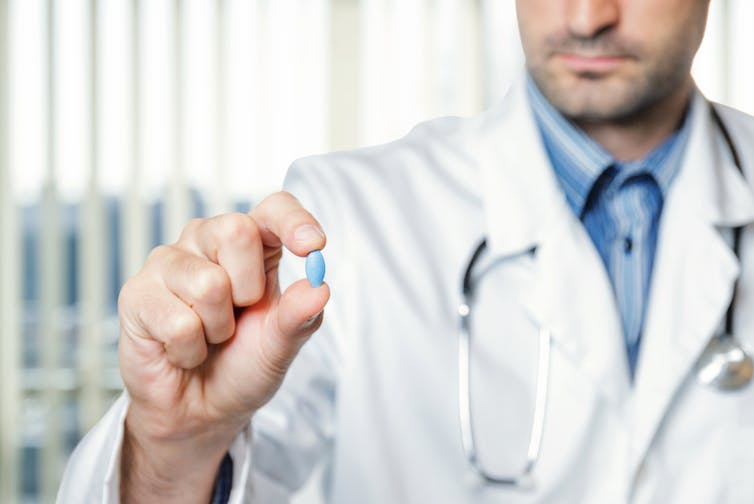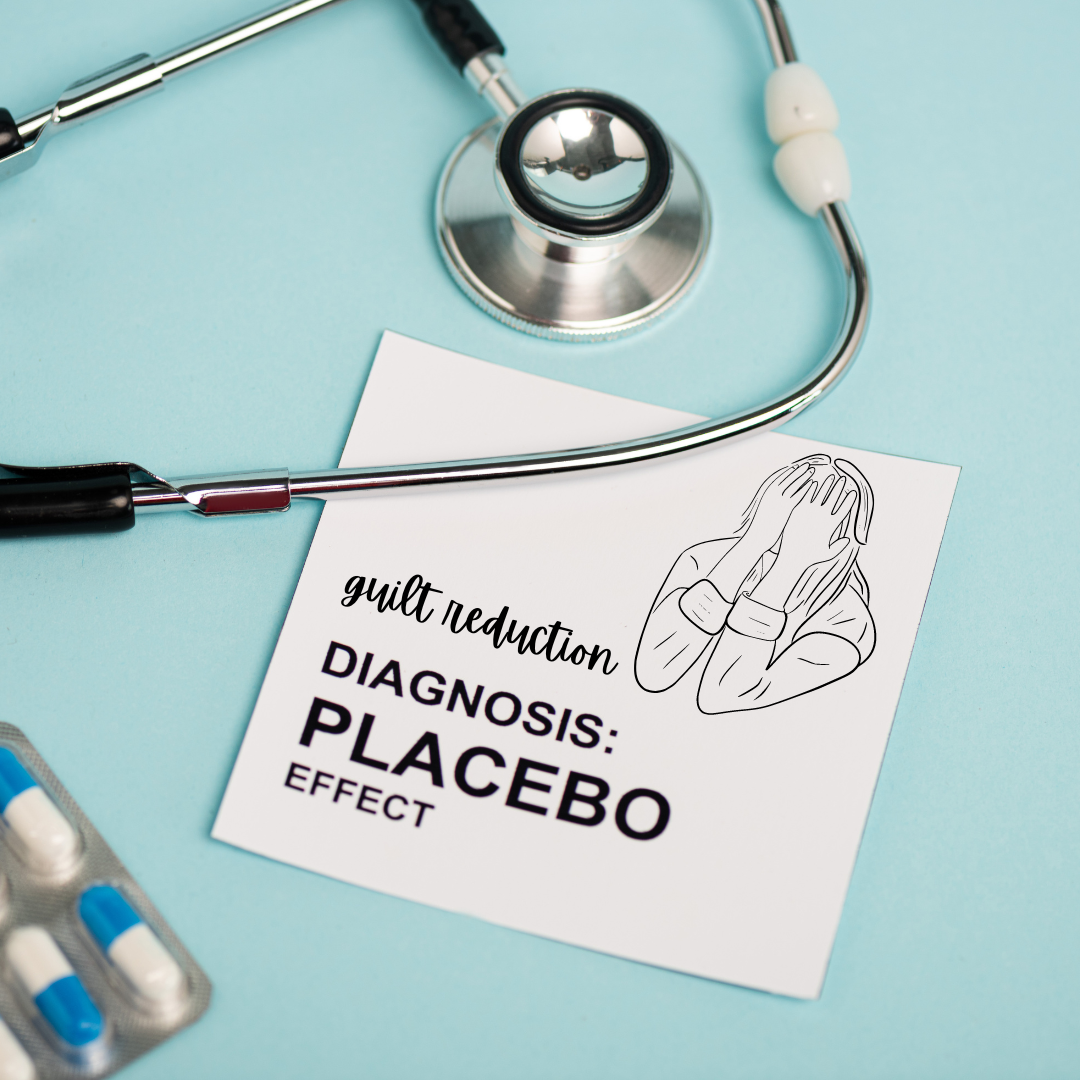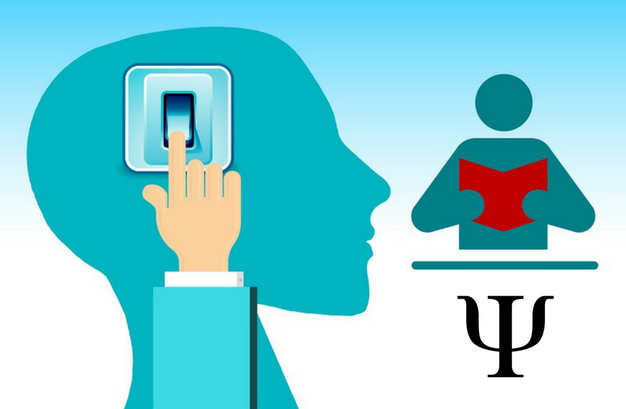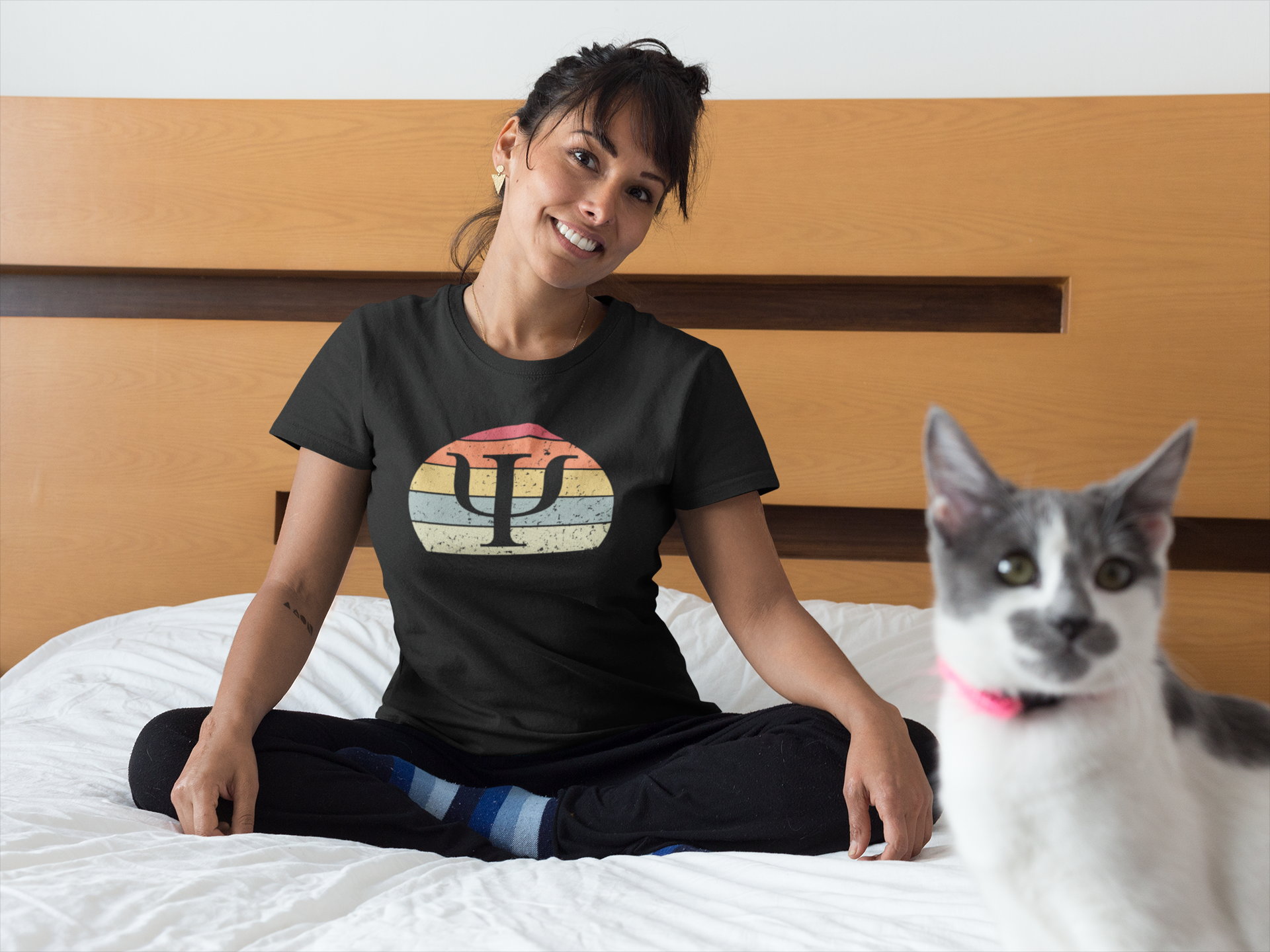Placebo Effect Example
Placebos Reduce Feelings of Guilt
Placebo Effect Example Placebos Reduce Feelings of Guilt - Even When People Know They’re Taking One
Guilt is a double-edged sword. It can be a reminder to improve and a motivation to apologise. It can also lead to pathological perfectionism and stress and is also closely associated with depression and post-traumatic stress disorder.
Unfortunately, good and bad guilt are common, and there are few proven treatments to reduce unhealthy guilt.
To help solve the problem of too much guilt, a recent study published in Nature found that placebos can reduce feelings of guilt, even when the person taking them knows they’re receiving placebos.
In the study, 112 healthy volunteers between the ages of 18 and 40 took part. Their guilt was measured at the beginning using questionnaires including the state shame and guilt scale (SSGS). This questionnaire asks people whether they feel remorse or bad about something they’ve done. Next, the participants did an exercise intended to make them feel more guilty. The exercise involved writing a story about a time they had treated someone they loved unfairly.
The participants were then divided into three groups. One group received a “deceptive placebo”: a blue pill they were told was a real drug. Specifically, they were told that the pill contained phytopharmacon, a substance designed to reduce the feeling of guilt by making whoever took it feel calmer.
Another group received an “open-label placebo” – the same blue pill, but this group was told it was a placebo. They were told that placebos benefit many people through mind-body self-healing mechanisms.
The third group did not receive any treatment at all. This was the “control” group.
After getting the treatment, the guilty feelings were measured using the same questionnaires to see whether the deceptive placebo or open-label placebo was more effective than no treatment.
The main outcome reported in the study was that the deceptive placebo and the open-label placebo combined were more effective at reducing guilt than no treatment.

Overcoming the placebo paradox
Open-label placebos are important because they overcome the “placebo paradox”. The paradox is that on the one hand placebos have effects, especially for pain, and we know how they work. Doctors are ethically bound to help their patients and this ethical force pushes them towards prescribing placebos.
On the other hand, traditional placebos are deceptive (patients think they are, or could be, a real treatment). Doctors are also ethically bound to avoid deceiving patients (usually) and this ethical force pushes them away from prescribing placebos (although it seems that most doctors have prescribed placebos at least once). Because open-label placebos do not involve deception, they overcome the paradox and pave the way for ethical (open-label) placebos to help patients, where appropriate.
While the novelty of this study must be applauded, it is not without it’s weaknesses.
First, the participants were healthy volunteers. They were not suffering from guilt before the experiment. It is unclear whether research in healthy volunteers translates to people in actual clinical practice. Also, the measures of guilt were only taken up to 15 minutes after the placebos were given. The long-term effects (and real-life usefulness) of the placebos are therefore not known.
A bigger problem was that it lumped the effects of deceptive and open-label placebos together. The novelty of the study is that it uses open-label placebos, so lumping their effects with those of deceptive placebos dilutes the novelty. This was rather odd because when I dug into the supplementary material, it was clear that open-label placebos alone were more effective than no treatment for reducing guilt. It’s a shame that this was not the headline result.
Encouraging
The fact that open-label placebos can reduce pathological guilt, even by a tiny amount, is encouraging because they can be used ethically in cases where better treatments do not exist. Future studies need to look at the effects of open-label placebos in actual patients and follow them up for longer.
It is also a small leap from the promising results of this study to believe that if open-label placebos work, we might be able to “placebo ourselves” by giving ourselves positive suggestions that make us feel better.![]()
Jeremy Howick, Professor and Director of the Stoneygate Centre for Excellence in Empathic Healthcare, University of Leicester
This article is republished from The Conversation under a Creative Commons license. Read the original article.
Really hope you enjoyed reading Placebo Effect Example Placebos Reduce Feelings of Guilt. Want to read more great articles?
See following link to check out a fascinating collection of psychology articles by leading academics and researchers.
This Psychology Symbol - Vintage Retro Striped Sunset T-Shirt is available from Amazon (prime eligible) in a range of colors for women and men. Sales help support this website, which has been providing free and comprehensive information and resources for psychology students and educators since 2008.
Recent Articles
-
Tourettes: Understanding Tourette Syndrome Beyond Stereotypes
Feb 23, 26 06:01 AM
Learn what tourettes really is, why swearing is a myth for most, and how education reduces stigma around Tourette syndrome. -
Psychological Impact of Catastrophic Injury & Recovery
Feb 17, 26 02:26 AM
Explore the psychological impact of catastrophic injury, including trauma, identity shifts, resilience, and long-term mental health recovery. -
Psychology Articles by David Webb
Feb 10, 26 06:31 AM
Discover psychology articles by David Webb, featuring science-based insights into why we think, feel, and behave the way we do.
Know someone who would love to read Placebo Effect Example Placebos Reduce Feelings of Guilt Share this page with them.
Please help support this website by visiting the All About Psychology Amazon Store to check out an awesome collection of psychology books, gifts and T-shirts.
Go From Placebo Effect Example Placebos Reduce Feelings of Guilt Back To The Home Page







